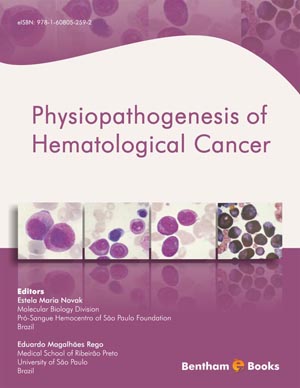Abstract
Cancer initiation and progression has been linked to oxidative stress, a condition in which the balance between production and disposal of reactive oxygen or nitrogen species is altered. Accumulation of such damage provokes noxious effects on individuals, resulting in diseases such as leukemias, multiple myeloma and lymphomas. Although the hematopoietic cells have multiple mechanisms to protect themselves from oxidative stresses, redox regulation accompanied by the change in reactive oxygen species (ROS) amount, it has been shown to be an important component in tumor therapy, as well as in malignant cell survival and induced-ROS cell death. In order to better understand the physiopathogenesis of hematological cancer in molecular and cellular levels of formation and growth of hematological tumors, this chapter will synthetize important points in cell death ( apoptosis, autophagy, necrosis) and production of free radicals as reactive oxygen and nitrogen species (ROS and RNS) and oxidative stress process.
Keywords: Oxidative Stress, Reactive Oxygen Species (ROS), Nitrogen Species (RNS), Apoptosis, Autophagy, Necrosis, Bcl-2 family, BH domains 1-3, Bone Marrow Necrosis, Leukemia, Lymphoma, Multiple Myeloma, BNIP3, Superoxide Dismutase (SOD), Cancer Therapeutic Drug .






















